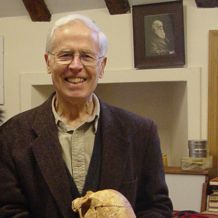Related Research Articles

The London School of Economics and Political Science is a public research university located in London, England, and a constituent college of the federal University of London. Founded in 1895 by Fabian Society members Sidney Webb, Beatrice Webb, Graham Wallas, and George Bernard Shaw, LSE joined the University of London in 1900 and established its first degree courses under the auspices of the university in 1901. LSE began awarding its degrees in its own name in 2008, prior to which it awarded degrees of the University of London.

The University of Reading is a public university in Reading, Berkshire, England. It was founded in 1892 as University College, Reading, a University of Oxford extension college. The institution received the power to grant its own degrees in 1926 by royal charter from King George V and was the only university to receive such a charter between the two world wars. The university is usually categorised as a red brick university, reflecting its original foundation in the 19th century.

The Department of Computer Science at the University of Manchester is the longest established department of Computer Science in the United Kingdom and one of the largest. It is located in the Kilburn building on the Oxford Road and currently has over 800 students taking a wide range of undergraduate and postgraduate courses and 60 full-time academic staff.
The Research Laboratory for Archaeology and the History of Art (RLAHA) is a laboratory at the University of Oxford, England which develops and applies scientific methods to the study of the past. It was established in 1955 and its first director was Teddy Hall. The first deputy director was Dr Stuart Young, who was followed by Martin Aitken in 1957. After many years of de-facto association with the Institute of Archaeology, in 2000 it was jointly brought under the single departmental umbrella of School of Archaeology.

The Aristotle University of Thessaloniki is the sixth oldest, and among the most highly ranked, tertiary education institution within Greece. Named after the philosopher Aristotle, who was born in Stageira, about 55 km east of Thessaloniki, it is the largest university in Greece and its campus covers 230,000 square metres in the centre of Thessaloniki, with additional educational and administrative facilities elsewhere.

The Department of Computer Science is the computer science department of the University of Oxford, England, which is part of the university's Mathematical, Physical and Life Sciences Division. It was founded in 1957 as the Computing Laboratory. By 2014 the staff count was 52 members of academic staff and over 80 research staff. The 2019, 2020 and 2021 Times World University Subject Rankings places Oxford University 1st in the world for Computer Science. Oxford University is also the top university for computer science in the UK and Europe according to Business Insider. The 2020 QS University Subject Rankings places The University of Oxford 5th in the world for Computer Science.

Donald Reginald Brothwell, was a British archaeologist, anthropologist and academic, who specialised in human palaeoecology and environmental archaeology. He had worked at the University of Cambridge, the British Museum, and the Institute of Archaeology of University of London, before ending his career as Professor of Human Palaeoecology at the University of York. He has been described as "one of the pioneers in the field of archaeological science".

The Department of Biochemistry of Oxford University is located in the Science Area in Oxford, England. It is one of the largest biochemistry departments in Europe. The Biochemistry Department is part of the University of Oxford's Medical Sciences Division, the largest of the university's four academic divisions, which has been ranked first in the world for biomedicine.
Herbert Holden Thorp is an American chemist, professor, and entrepreneur. He served as the tenth chancellor of the University of North Carolina at Chapel Hill. Thorp assumed the position of chancellor on July 1, 2008, succeeding James Moeser, and, at age 43, was noted at the time as being among the youngest leaders of a university in the United States. At the time of his selection as chancellor, Thorp was the dean of the College of Arts and Sciences and a Kenan Professor of chemistry at the university. Thorp is a 1986 graduate of UNC; he later earned a Ph.D in chemistry from California Institute of Technology, and was a postdoctoral associate at Yale University.

The Oxford Department of International Development (ODID), or Queen Elizabeth House (QEH), is a department of the University of Oxford in England, and a unit of the University’s Social Sciences Division. It is the focal point at Oxford for multidisciplinary research and postgraduate teaching on the developing world.
Helena Francisca Hamerow, FSA is an American-born archaeologist, best known for her work on the archeology of early medieval communities in Northwestern Europe. She is Professor of Early Medieval archaeology and former Head of the School of Archaeology, University of Oxford.
The Oxford Journal of Archaeology is a quarterly peer-reviewed academic journal published by John Wiley & Sons on behalf of the School of Archaeology, University of Oxford. It was established in 1982 and the editors-in-chief are Nicholas Purcell, Barry Cunliffe, Helena Hamerow, and Chris Gosden.
The various academic faculties, departments, and institutes of the University of Oxford are organised into four divisions, each with its own Head and elected board. They are the Humanities Division; the Social Sciences Division; the Mathematical, Physical and Life Sciences Division; and the Medical Sciences Division.
Dame Rosemary Jean Cramp, is a British archaeologist and academic specialising in the Anglo-Saxons. She was the first female professor appointed at Durham University and was Professor of Archaeology from 1971 to 1990. She served as President of the Society of Antiquaries of London from 2001 to 2004.
The Department of Information Studies is a department of the UCL Faculty of Arts and Humanities.
Amy Bogaard FBA is a Canadian archaeologist and Professor of Neolithic and Bronze Age Archaeology at the University of Oxford.
Julia Anne Lee-Thorp, is a South African archaeologist and academic. She is Head of the Stable Light Isotope Laboratory and Professor of Archaeological Science and Bioarchaeology at the University of Oxford. Lee-Thorp is most well known for her work on dietary ecology and human origins, using stable isotope chemistry to study fossil bones and teeth.
Glynis Eleanor Jones FBA is a British archaeobotanist, who is Professor of Archaeology at the University of Sheffield.
Nikki Whitehouse is a British archaeologist and palaeoecologist. She is professor of human-environment systems at the University of Plymouth.

The Department of Archaeology at the University of Sheffield, UK, is an academic department providing undergraduate and postgraduate courses in archaeology and its sub-disciplines based in the city of Sheffield, South Yorkshire. It conducts archaeological associated research with several dedicated research centres. It was founded in 1976, stemming from early archaeology programs in the 1960s as one of the first universities in the UK with a dedicated Department of Archaeology.
References
- ↑ "About the School". School of Archaeology, University of Oxford. Retrieved 17 April 2018.
- ↑ "Professor Amy Bogaard". www.arch.ox.ac.uk. Retrieved 2022-01-05.
- ↑ Hamerow, Helena (2014). Rural settlements and society in Anglo-Saxon England. Oxford. ISBN 978-0-19-872312-7. OCLC 892869154.
- ↑ "Lee-Thorp, Prof. Julia Anne, (born 20 April 1951), Professor of Archaeological Science, 2010–19, now Emeritus and Head, School of Archaeology, 2016–19, University of Oxford, now Research Professor of Archaeological, Geographical and Environmental Science, Quaternary Research Centre; Fellow, St Cross College, Oxford". WHO'S WHO & WHO WAS WHO. doi:10.1093/ww/9780199540884.013.U267093. ISBN 978-0-19-954088-4 . Retrieved 2022-01-05.
